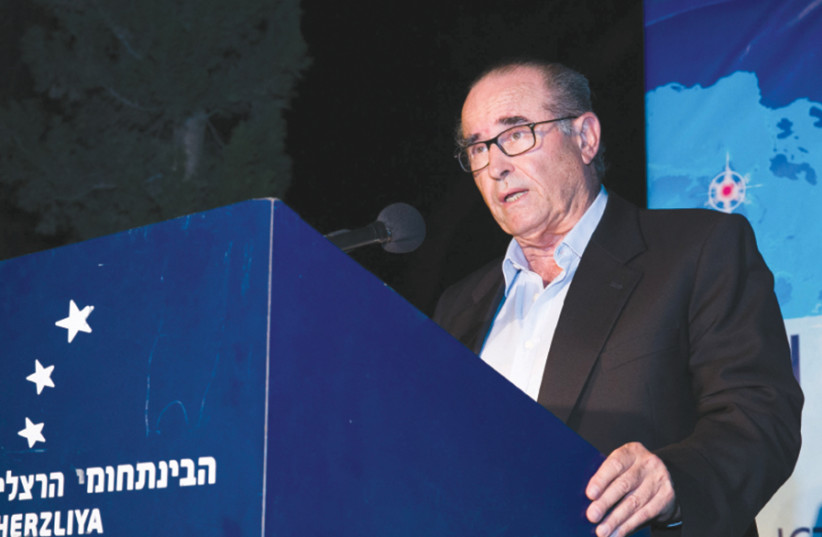Ex-Mossad chief Shabtai Shavit dies at 84
Former Mossad director Shabtai Shavit died at age 84 during a trip to Italy, the agency announced Tuesday night.Shavit was the director from 1989-1996 during which he significantly broadened the spy organization’s relations both in the Middle East and globally.
He started his career as an intelligence collection officer in Iran in 1964, working his way up the ranks in both the Tzomet intelligence collection division as well as the operations division.
After retiring, Shavit served in many capacities, including as founding chairman of Reichman University’s International Counter Terrorism Institute.
In his book The Head of the Mossad, he describes his experiences and familiarity with Iran gained from living there in the mid-1960s for 18 months. He also details how he cooperated with Iranian intelligence (pre-Islamic Republic) while in Kurdistan in 1973.
He told The Jerusalem Post in one of multiple interviews: “I speak as an intelligence man, not as a politician. My starting point – an intelligence officer cannot make assumptions – is to be ready for the worst-case scenario, that down the road they’ll develop nuclear weapons.
 Shabtai Shavit (credit: REUTERS)
Shabtai Shavit (credit: REUTERS)“They are an empire, and they think of themselves as an empire. They believe they will bring light to the nations. They look down on Arabs. They never forgave the Arab conquest and that Arabic was forced on them,” and all of the actions to erase their Persian heritage.
Shavit’s role in Iran
Shavit explained further that even though the 1980-1988 Iran-Iraq War had no victor, Iraq clearly did better, and that then-Iranian supreme leader Ruhollah Khomeini said ending the war was “like drinking poison.”
By the end of the war, Iran had gotten to the point where Khomeini was “send[ing] children into battle with explosives… all of these examples show the culture and ethos of Iran as a power that went through very hard times and wants to get back to what it was.”
He said that Iran learned, from Iraq’s use of chemical weapons against it during the Iran-Iraq War, that it needed to obtain nonconventional weapons, including nuclear.
He added that he has “no doubt that Iran is continuing to work today, as we speak, to develop nuclear capabilities. They are doing it clandestinely to avoid provoking the US and the rest of the world.”





Comments are closed.